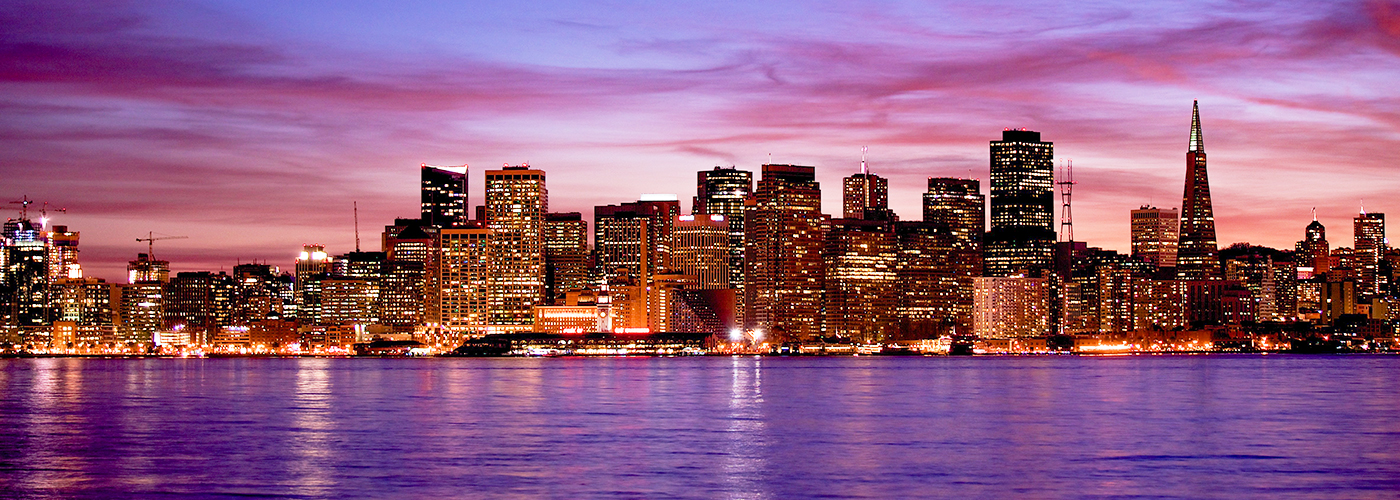A version of this post was co-written by David Bank and Dennis Price and originally appeared on ImpactAlpha.
For all of the disruptions wrought by the global digital revolution, “Silicon Valley” has sometimes turned its back on the rest of the world.
The melding of Silicon Valley’s tech-fueled growth model and the explosion of entrepreneurial activity around the world is long overdue. Tweet This Quote
This week, the rest of the world is coming to Silicon Valley. The seventh Global Entrepreneurship Summit, sponsored by the U.S. State Department, kicked off Wednesday, June 22, at Stanford University in Palo Alto, giving the event a different vibe than the last three summits in Nairobi, Marrakech and Kuala Lumpur.
The melding of Silicon Valley’s tech-fueled growth model and the explosion of entrepreneurial activity around the world is long overdue. Overbroad as it may be, there’s some basis for the rap that Sand Hill Road venture capitalists favor over-privileged, self-absorbed techies solving the urgent problems of 20-something San Francisco scenesters.
The “Problem” Problem
The critique is starting to break through. The Valley’s “unchecked arrogance,” and monoculture worldview was taken to task by Ross Baird, CEO of Village Capital and Lenny Mendonca, a former senior partner at McKinsey & Co. In a recent podcast, Kleiner Perkins partner Randy Komisar suggested entrepreneurs were tackling increasingly frivolous problems. Riva-Melissa Tez, herself an entrepreneur and investor, calls out Silicon Valley’s “problem problem” in a provocative essay on Medium.com.
Over the last five years, Silicon Valley directed only 10 percent of venture capital to startups with at least one woman founder. Tweet This Quote
“Not knowing if you can get sushi delivered at 10pm to your exact location is not a problem,” Tez writes. Some 800 million people across the globe have limited access to food or water. That’s about one in nine people on the planet. Now, that’s a problem.”
Institutional Investor’s Imogen Rose-Smith, who recently spent three months in San Francisco, agrees. “If and when the current tech bubble bursts, my hope is that we’ll see more capital flow into areas like climate technology and sustainable agriculture,” she wrote.
It may be natural that entrepreneurs that face such challenges are the ones trying to solve them. The Global Entrepreneurship Summit is not billed as an impact investing event, but many, if not most of the 700 entrepreneurs and innovators are tackling social or environmental challenges, because big problems mean big opportunities. The entrepreneurs, from 170 countries, are creating solutions for problems facing adolescent girls, refugee communities, and the global unbanked. Half of the entrepreneurs at the summit are women, while Silicon Valley over the last five years directed only 10 percent of venture capital to startups with at least one woman founder.
And Silicon Valley doesn’t have a monopoly on the checkbook either. The global entrepreneurs disrupting sectors from manufacturing to energy will mix it up with more than 300 investors, including 63 from Africa and the Middle East. The implicit message to the locals: get on board or get left behind.
Silicon Valley investors are beginning to look beyond the Bay Area to entrepreneurs addressing the world’s major challenges. Tweet This Quote
Bottom Billions
While the vast majority of its capital continues to flow to “entrepreneurs whose lived experience is in well-off, well-connected cities,” as Baird and Mendoca point out, there’s at least some evidence that the Valley’s investors and other top VCs are beginning to look beyond apps, and beyond the Bay Area, to entrepreneurs addressing the world’s major social, environmental and development challenges.
Union Square Ventures’ Fred Wilson is looking to the developing world for venture capital’s “next white space.” The next 2.5 billion smartphone adopters, he says, will look to their devices “to deliver essential services that they have not been receiving at all—from the web or from the offline world.”
Mark Suster, the prominent entrepreneur, investor and blogger wants to solve big food and healthcare problems to find the next great companies.
Lifting up the world’s poorest 4.5 billion people is the global economy’s next big growth engine. Tweet This Quote
Andreessen Horowitz recently made their first investment in a company whose target market is predominantly Africa, in Branch, the new mobile financial services platform of Kiva.org co-founder, Matt Flannery.
And, last week AOL-founder turned investor, Steve Case and his VC firm Revolution, announced the raise of a half-billion dollar growth fund to, get this, invest outside Silicon Valley. Case is one of about a dozen Presidential Ambassadors for Global Entrepreneurship at the summit this week.
“Imagine a world where businesses compete on being best for the world, and where that is precisely what makes them the best in the world,” writes Julie Hanna, the executive chair of Kiva, the online microlending platform, and another presidential ambassador for global entrepreneurship.
The Valley loves a megatrend, so here’s one: Lifting up the world’s poorest 4.5 billion people is the global economy’s next big growth engine, according to a February report from Bank of America Merrill Lynch. The emergence of those 4.5 billion into the middle class means more than $50 trillion in new spending annually by 2030 on communications technology, financial services, healthcare and education, and high demand for solutions to pandemics, waste and climate climate, according to BAML.
The emergence of the 4.5 billion into the middle class means more than $50 trillion in new annual spending by 2030. Tweet This Quote
“We also see opportunities around the $5 to $7 trillion per year in investments needed to realize the UN’s Sustainable Development Goals,” states the report. “Inclusive growth will be key to alleviating growing risks around disempowerment, unrest, instability, migration and the collapse of nation-states.”
Big and Growing Opportunity
The BAML report identifies 250 publicly-traded stocks that can give growth-hungry investors exposure to this emerging opportunity including Facebook, China Mobile, Alibaba and MacDonald’s. But it may be small and growing businesses around the world that actually tackle the development challenge.
The Aspen Network of Entrepreneurs, or ANDE, for example, focuses in emerging markets on entrepreneurs running businesses that are commercially viable, have between 5 and 250 employees and have the ambition, and potential, to scale. ANDE calls them small and growing businesses, or SGBs. As opposed to most of the 250 public companies on BAML’s list, these SGBs “are typically embedded into communities, and have strong links to the last mile of distribution or sourcing that can be so challenging for larger organizations,” writes Randell Kempner, ANDE’s executive director, in a new report. They also “create jobs for the local economy, make connections to regional and global markets, and often increase access to critical goods and services for underserved communities.”
It may be small and growing businesses around the world that actually tackle the development challenges. Tweet This Quote
At this week’s Summit, Kempner will participate in a panel named Igniting Silicon Valley to Accelerate Global Entrepreneurship. In just the last decade, ANDE has counted 485 investment vehicles, with a stock pile of $26 billion in capital, to invest solely in SGBs. More than fifty of these launched just last year. Though seed stage investing continues to be a challenge for SGBs, emerging market deals under $2 million rose 34 percent in 2015 to $263 million, or a quarter of all deals by volume. ANDE’s own 238 members have collectively invested over $12 billion and supported over 415,000 entrepreneurs in emerging markets in the last decade.
The keynoters at this week’s summit will be well-known Valley figures such as Facebook’s Mark Zuckerberg and Travis Kalanick and Brian Chesky, respectively the founders of Uber and Airbnb, the first and third most valuable startups in the world. U.S. President Barack Obama, Secretary of State John Kerry and Commerce Secretary Penny Pritzker will address the conference and tour the pavilion as well.
But the Valley’s savvy investors will know to listen more than talk, and to keep a keen eye on the women and men (and youth!) who are using innovation and technology to meet the needs of billions by delivering not just a new social media app, but sustainable, inclusive prosperity for the 21st century.



